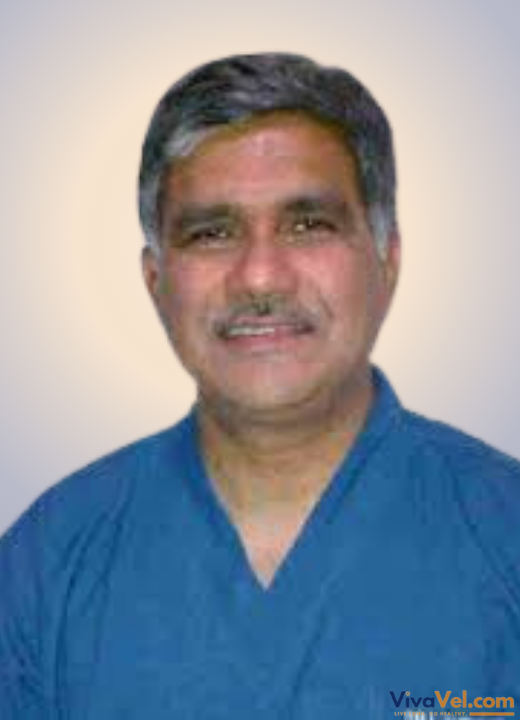info@vivavel.com
+919818262686
+919818262686
 info@vivavel.com
info@vivavel.com +919818262686
+919818262686The Autism Diagnostic Observation Schedule (ADOS) is a tool used by doctors and psychologists to help diagnose autism spectrum disorders (ASD). It involves interacting with the person through a series of structured activities designed to examine how the person communicates, interacts with others, and plays. During the assessment, the person might be asked to play with toys, have conversations, or respond to social situations.
The ADOS has different modules depending on the age and language ability of the person being assessed. Each module includes specific tasks that help reveal how well the person can use language, understand social cues, and engage in activities. The person being assessed is observed closely throughout these activities. The goal is to gather information about their behaviors and skills in a structured way.
The results from the ADOS help doctors understand whether the person has autism traits and how these traits impact their daily life. The ADOS is just one part of a larger assessment process that also includes examining developmental history and other evaluations.
 The ADOS is used to evaluate the following symptoms commonly associated with autism:
The ADOS is used to evaluate the following symptoms commonly associated with autism:
Note: The ADOS is designed to assess these symptoms in a controlled setting to aid diagnosis.

 Autism is a complex condition with no single cause. The ADOS doesn't address causes but helps in diagnosing ASD based on observed behaviors and symptoms. Factors that may contribute to autism include:
Autism is a complex condition with no single cause. The ADOS doesn't address causes but helps in diagnosing ASD based on observed behaviors and symptoms. Factors that may contribute to autism include:
 Seek evaluation with ADOS if you notice:
Seek evaluation with ADOS if you notice:
Consult a healthcare professional or specialist if these symptoms are observed.
 The ADOS is a diagnostic test used in the assessment process for autism. It involves:
The ADOS is a diagnostic test used in the assessment process for autism. It involves:
The ADOS is often used alongside other assessments, such as developmental history reviews and diagnostic tools.
 Do's:
Do's:
 Don'ts:
Don'ts:
NOTE:
Our team of medical content authors has carefully researched and compiled information on this topic to provide valuable insights for our readers. By referencing various reputable medical journals and health resources, this content aims to improve understanding of the subject. Please remember that while this information is informative, it should not substitute for personalized consultation or treatment from a qualified physician. For more details, please refer to our Editorial Policy.
For this topic, our authors used some of the following resources:
ScienceDirect.com | Autism Diagnostic Observation Schedule - an overview
bedslutonchildrenshealth.nhs.uk | Autism diagnostic observation schedule (ADOS) assessment
National Institutes of Health (NIH) (.gov) | The Role of the Autism Diagnostic Observation Schedule
National Institutes of Health (NIH) (.gov) | The Autism Diagnostic Observation Schedule – Toddler





![]() Pusa Road, Radha Soami Satsang, Rajendra Place New Delhi, 110005 India
Pusa Road, Radha Soami Satsang, Rajendra Place New Delhi, 110005 India



![]() Budena Village, Sector 86, Faridabad, Haryana 121002, India
Budena Village, Sector 86, Faridabad, Haryana 121002, India



![]() C-1, Sushant Lok- 1, Sector-43, Phase- I, Gurugram, Haryana, 122002
C-1, Sushant Lok- 1, Sector-43, Phase- I, Gurugram, Haryana, 122002




![]() Lot 2, Jalan Baung 17/22, Seksyen 17, 40200 Shah Alam, Selangor Kuala Lumpur, 40200 (Malaysia)
Lot 2, Jalan Baung 17/22, Seksyen 17, 40200 Shah Alam, Selangor Kuala Lumpur, 40200 (Malaysia)


Dr. (Prof.) Rohit Gupta is a well-known neurologist in Faridabad, Haryana, India, with over 17 years of experience in clinical neurology. He achieved academic success...

Dr. Sandeep Ghosh is a highly regarded consultant neurologist, currently practicing at the esteemed Neurosciences Department of Accord Superspeciality Hospital in Faridabad, ...

Dr. Vikram Dua is one of India's top neuro and spine surgeons. With over 26 years of experience, he has performed over 10,000 surgeries, with a success rate excee...

Dr. LN Tripathy is a highly esteemed neurosurgeon with an impressive 31-year career. Since April 2010, he has been the Director of the Medica Institute of Neurologica...

Dr. Anish Kumar is a highly experienced medical professional with over 21 years of experience, including more than 11 years dedicated to neurology. He is currently a ...

Dr. Kaushik Sen is a highly esteemed senior consultant neurologist with over 18 years of post-DM experience in neurology. He holds a gold medal in MBBS, an MD i...
Treatment Plan & Cost within 2 days
